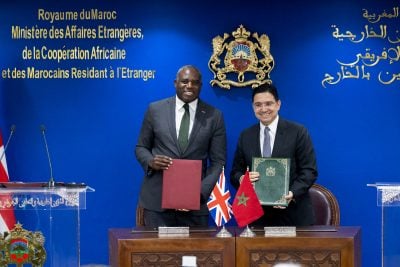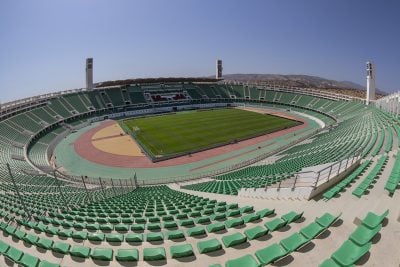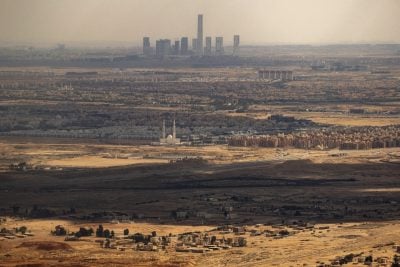The vast ocean surrounding the island nation of Mauritius is brimming with hitherto untapped wealth. While its fishing potential is being exploited, many other treasures of the ocean have gone unnoticed. Until now that is, as Nasseem Ackbarally reports from Port-Louis.
As a small island surrounded by the Indian Ocean, Mauritius has only limited land. Now the island nation plans to create wealth from the sea’s resources all around it in its 2.3m sq km exclusive economic zone (EEZ), one of the largest in the world.
The ocean provides about 60% of food proteins in tropical countries and 80% of the world’s mineral resources. The EEZ surrounding Mauritius represents wealth and enormous economic opportunities for a small island.
The ocean around the island contain not only seafood but also sponges, polymetallic nodules and possibly oil and gas. Wave energy can be a valuable source of power. Mauritians seem to have ignored their ocean apart from using it for fishing.
In the past, foreign scientists, mainly from India, have done preliminary studies and pointed out to Mauritians the immense economic and business potential lying in this vast ocean. Until now the full potential of the ocean’s bounty has never been thoroughly explored. But now the Mauritius Research Council (MRC), the Mauritius Oceanography Institute, the Albion Fisheries Research Centre and the University of Mauritius are all working on projects to facilitate the exploitation of the resources lying deep in the ocean.
For years, fishing has been the only economic activity. Aquaculture was launched a few years ago and is progressing well. Mauritius is already a seafood hub and one of the biggest tuna exporters to the EU from the African Caribbean and Pacific (ACP) group of countries. Now there is considerable focus on the culture and cultivation of seaweed. Projects have been launched on four sites, two of them on the neighbouring island of Rodrigues.
“We can exploit the 500 species of seaweed, of which some are endemic to the island, lying in the sea around the island to produce agar agar, used in products such as toothpaste and beer. If we don’t do this, we’ll miss a huge economic potential and we’ll be the losers,” warns Fisheries Minister Nicolas Von-Mally.
The Mauritius Research Council has invested substantially in researching seaweed farming. Scientists are fine-tuning the transformation of local seaweeds into products for human consumption and for cosmetic, medical and pharmaceutical uses such as bio-fertilisers and animal-feed formulation. A number of food products including pickles and jams have been developed so far.
Applying lessons from similar developments around the island of Zanzibar, Tanzania on the east coast of Africa, it is anticipated that this new industry will alleviate the problems of increasing fertiliser prices and the high costs of animal feed faced by the agricultural community.
Professor Soodarshan Jugessur from the University of Mauritius believes the island has reached a stage where seaweed can be commercially exploited in a variety of ways. “It has been scientifically proved that seaweed has nutritive, pharmaceutical and energy-related value. The future lies in the ocean around us,” he says.
Research is ongoing on the medicinal properties of sponges around Mauritius. “What a breakthrough it would be for the island if we are able to find molecules in sponges that can cure cancer!” says Minister Von-Mally. Mauritius is also developing coral farming by propagating corals in land-based nurseries and thus preventing further degradation of the marine environment. Scientists at the University of Mauritius believe there is a big market for coral and that it could play an important part in the island’s aim to attract 2m tourists a year. Jewellery, handicrafts and high-priced souvenirs made out of coral are in big demand by locals as well as tourists. Trade in aqua-cultured corals can create jobs and bring in substantial foreign income.
Deep-sea treasure trove
The proposal to set up a Land-based Oceanic Industry (LBOI) could be the real gold mine, laying the foundations of a whole new industry based on commercial exploitation of the deep Indian Ocean waters. Polymetallic nodules have been found in the sea between Mauritius and the island of Rodrigues. These are large porous nodules found on the ocean floor containing metallic trace elements of manganese, copper, nickel and cobalt that can be recovered and have a commercial value. The Mauritius Research Council’s executive director Arjoon Suddhoo believes that Mauritius can become the ocean capital of the world through this project by discovering a treasure house of metals on the ocean floor.
“This new industry can generate new wealth from the ocean and provide direct and indirect jobs over the next five years. The products of the new oceanic industrial cluster are mostly for exports, but will also serve both the tourist and the local market,” he says.
The LBOI will also investigate tapping into the deep currents that travel continually around the globe. These are very slow-moving large masses of cold water, usually found at 1,000 metres below the sea’s surface.
The MRC says Mauritius is ideally positioned to exploit the water currents commercially, as they flow only a few kilometres off the coast of the island. There are various ways of exploiting deep-sea water.
Thalassotherapy, or seawater spa treatment, is in great demand by European tourists. In addition, the coolness of the water can be used for air conditioning in coastal hotels and other large buildings reasonably near the coast. Air conditioning accounts for 40% of the electricity bill of most hotels currently. Environmental Engineer Vassen Kauppaymuthoo is confident that if these resources are exploited correctly, the ocean surrounding the island can become the main pillar of the Mauritian economy.
The possibilities are immense and diverse but at present, only the fishing industry, which gives jobs to about 11,000 people directly and 20,000 others indirectly in the seafood hub are plugged into the enormous wealth of the seas around the island of Mauritius.
Want to continue reading? Subscribe today.
You've read all your free articles for this month! Subscribe now to enjoy full access to our content.
Digital Monthly
£8.00 / month
Receive full unlimited access to our articles, opinions, podcasts and more.
Digital Yearly
£70.00 / year
Our best value offer - save £26 and gain access to all of our digital content for an entire year!
 Sign in with Google
Sign in with Google 


